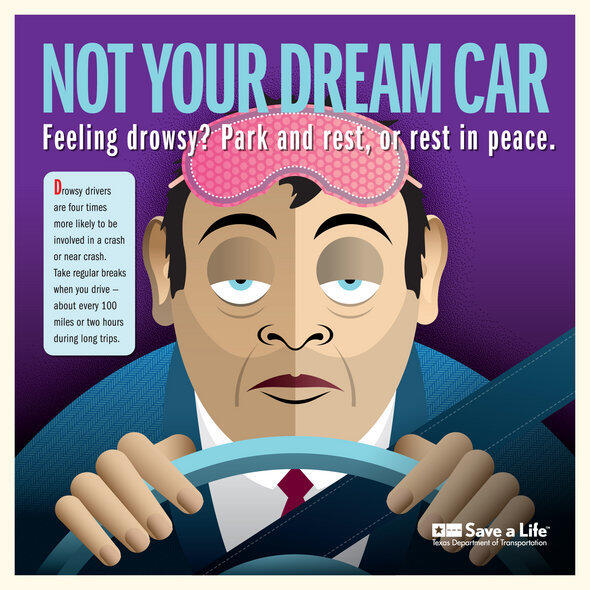Behind the Wheel: Warning Signs of Drowsiness & Fatigue

You may be suffering from drowsiness or fatigue if you:
- can't remember the last few miles driven
- have wandering or disconnected thoughts
- experience difficulty focusing or keeping your eyes open
- have trouble keeping your head up
- drift from lanes or hit a rumble strip
- yawn repeatedly
- tailgate or miss traffic signs
- find yourself jerking your vehicle back into lane….
Continuing to drive in this condition puts you at serious risk of being involved in a fatigue-related crash. You should pull over in a safe place and get some rest before resuming your trip.
What you can do to stay alert while driving:
- Sleep / Take naps: Your best bet is to get enough sleep every day. If you must stay up late, afternoon naps are a great way to get more sleep. If you feel drowsy while driving, a 15-minute nap can be very effective. Make sure to pull over in a safe place.
- Caffeine: Avoid caffeine during the last half of your workday as it may contribute to sleeping problems. You can gain short-term alertness by drinking coffee or other caffeine sources if driving, but it usually takes 30 minutes to take affect and wears off after a few hours.
- Regular stops: You should stop every 100 miles or 2 hours. Switch drivers if you can.
- AC MAX – Recirculation: Do not operate the vehicle for extended periods of time with the AC on MAX or Recirculation. Under these conditions the level of C02 in the vehicle is increased contributing to drowsy driving.
- Avoid Alcohol: If you have been drinking, please don't drive! In addition to being illegal, alcohol makes you sleepy and amplifies your fatigue.
"Tricks” that do not work:
- Opening the window
- Turning on the air conditioning
- Playing loud music
These tricks are not effective in keeping drivers alert for any extended period of time, so try the above tips to stay alert, so you can arrive alive.






